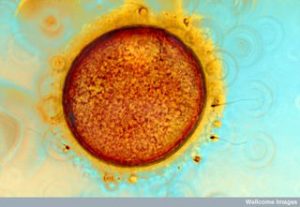In today’s New York Times, Emily Parker writes about something that we all sort of know but don’t want to face: When it comes to fake news going viral, Facebook, Twitter, and Google aren’t the entire problem. We are. As she writes, we are the ones spreading the information; we are the ones who find it much easier to digest news that’s fed to us in bite-sized, easy-to-digest portions. She calls complex debate the vegetables (good for you/not appealing) while fake stuff is candy (junk/super-tempting).
Funny that she went for the health side of it, because the whole time I was reading about fake news and politics, I was thinking that the same could be said for health news. We want a quick fix rather than a nuanced discussion of the pros and cons.
We complain that doctors keep changing their minds. Fifty years ago, hormone therapy for menopausal women was great, a few decades later it was dangerous, and now it’s good for some women, not others. Fifty years ago, natural growth hormone (from the brains of cadavers) was better than synthetic, then we were told the laboratory-made stuff was better.
Does that mean scientists were wrong? That we have to worry they are spreading fake news? No, it means we have to recognize that medicine is an uncertain art.
- Don’t read every scientific study as the final word.
- Be wary of people that tout quick fixes.
- Appreciate that gleaning health information is often complex and takes more than a quick nod to understand. If you care about your health, care enough to read the whole story.
- Understand that our knowledge of the human body is evolving.
“There is wisdom in the acceptance of uncertainty,” wrote Dr. Sherwin Nuland, my former medical school professor in an essay in the New York Times, six years before his death. Wisdom that isn’t easy to digest but it is good for you. That’s for sure.
For further reading on accepting uncertainty in medicine, I recommend this piece in the New England Journal of Medicine by Dr. David J. Hunter, professor emeritus of cancer prevention at Harvard T. H. Chan School of Public Health.

